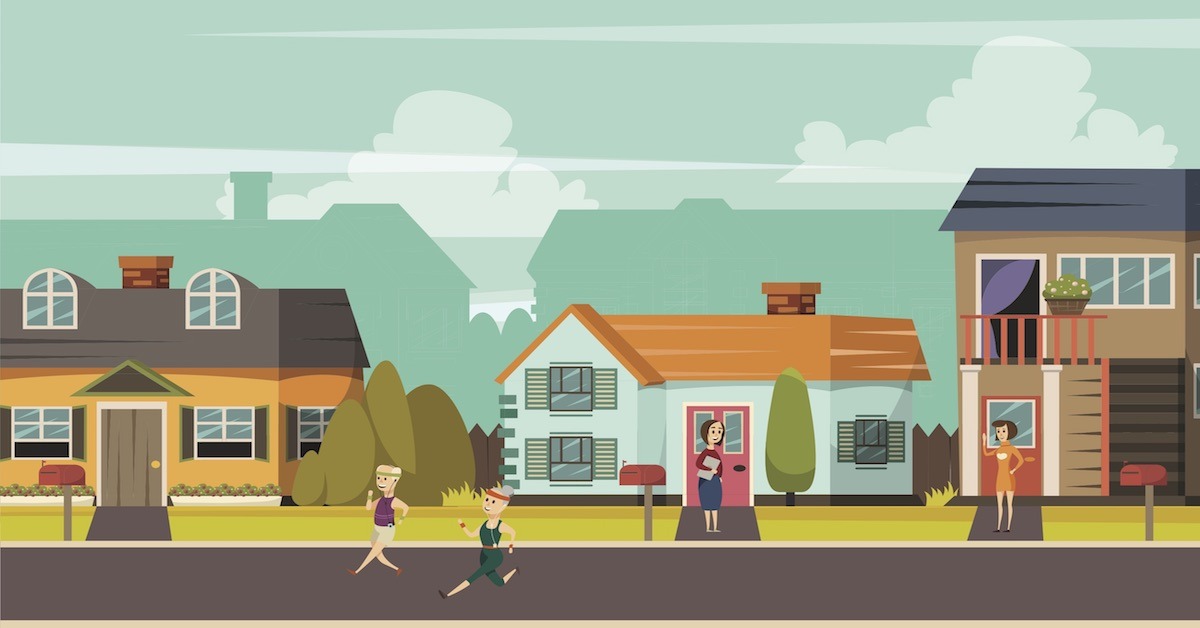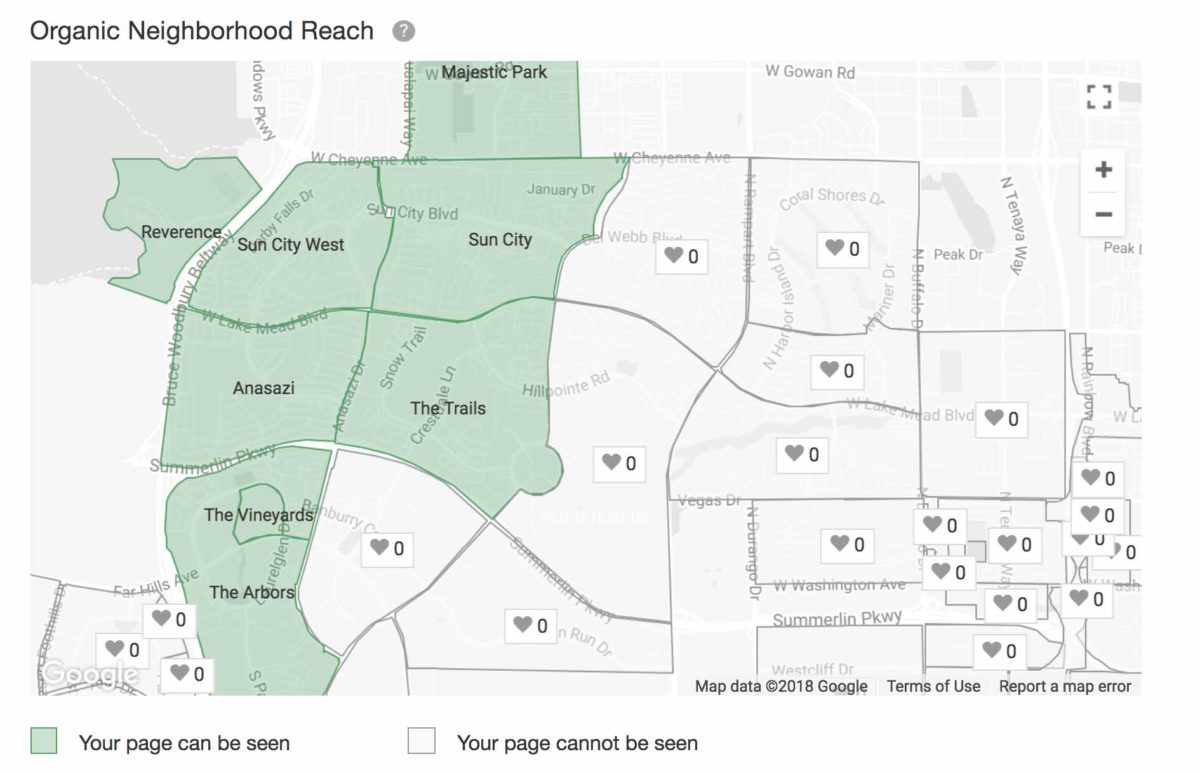Have you heard the news? Nextdoor, a social networking site for neighborhood residents now offers agents the option of becoming ‘neighborhood sponsors’ to connect with local buyers and sellers.
But is their strategy effective?
Agents are always looking for the next big thing to generate brand awareness and leads. New software, apps, and services are constantly emerging, with promises that either sound too good to be true, or simply fall short of the benefits they market.
As Parkbench CEO, I’m 100% in support of any service that claims to help agents add value to their neighborhood. I strongly believe that future economies will largely revolve around community-centric solutions.
That being said, I wanted to find out for myself if Nextdoor lives up to the hype, and how agents can use Nextdoor best. I’ve done some digging to figure out what the deal is, how well it works for agents, and exactly how Nextdoor helps agents.
How Does Nextdoor Work?
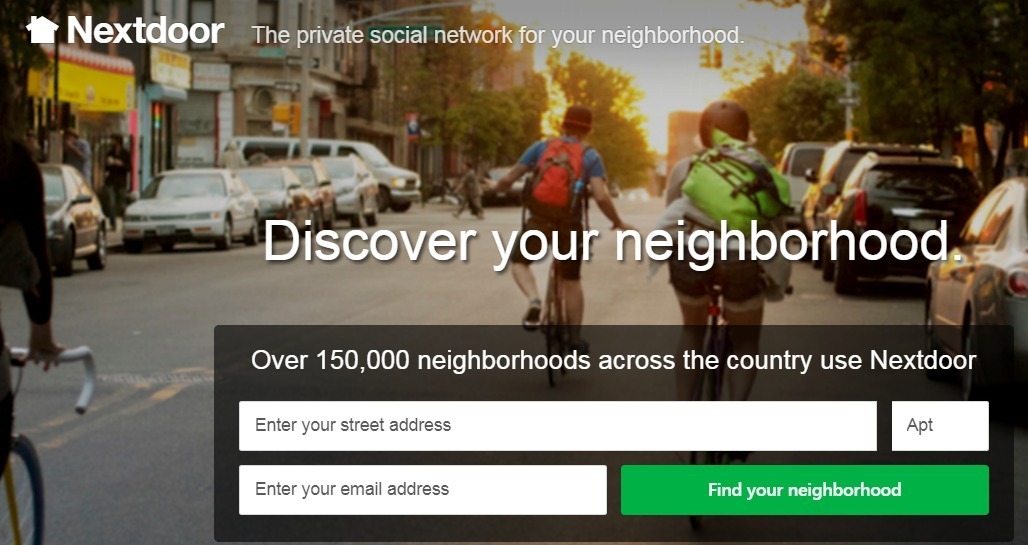
First off, Nextdoor is its own, private ecosystem. What makes Nextdoor unique from, say, Facebook, is membership exclusivity. To create a personal or business account, members must validate their physical address with either a driver’s license or other valid ID. In some cases, a credit card number or cell number with a matching billing address is required.
In other words, if you can’t prove with certainty that you live in the neighborhood, you can’t join Nextdoor. So, if you manage a team, encourage each member to register an account in their respective neighborhood.
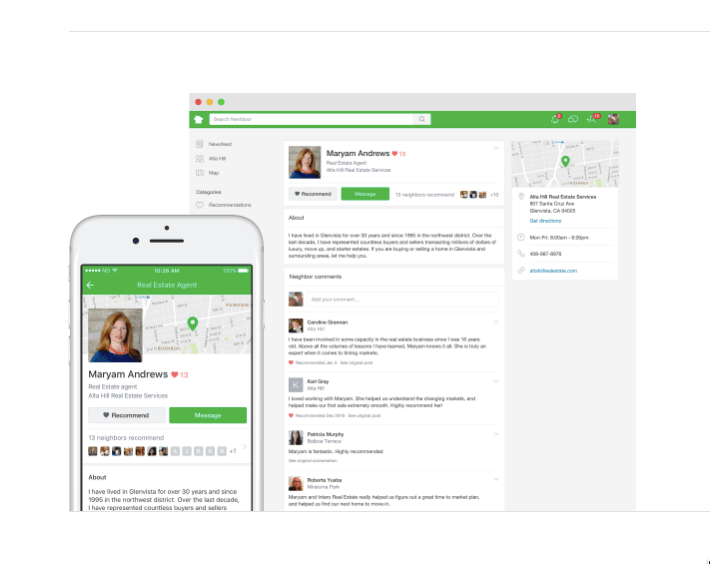
Nextdoor members can direct message one another and post content relevant to the community such as:
- Ask questions
- Exchange recommendations
- Find local products
- Promote a local event
- Post notices about the community (traffic, crime, construction, etc)
As a result, Nextdoor can be a great way for you to meet local residents by:
- Answering real estate questions
- Responding to posts
- Sharing important neighborhood alerts
Nextdoor Users At A Glance
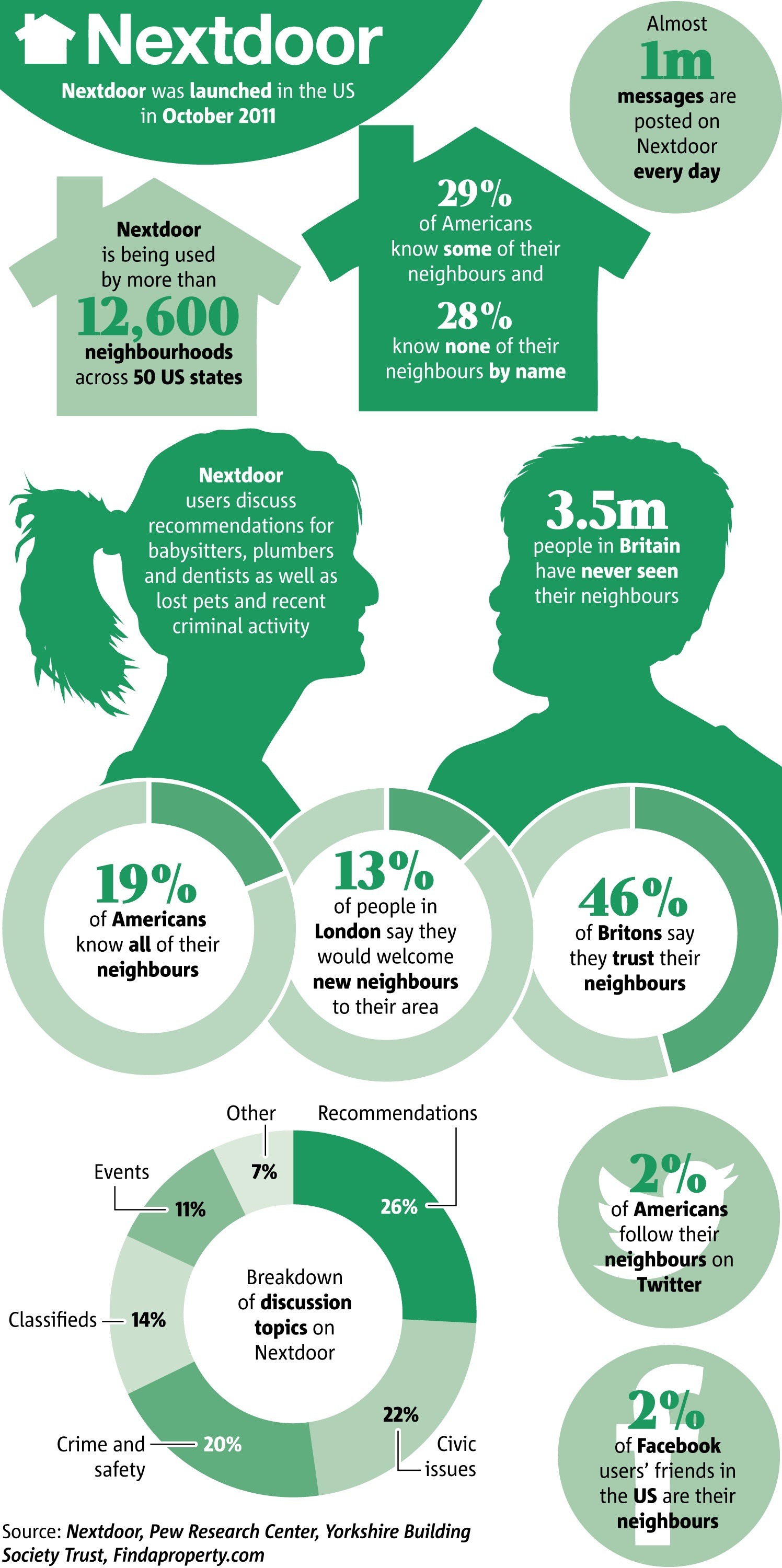
Nextdoor Neighborhood Feed
The neighborhood feed is the primary communication tool for Nextdoor members. Content posted on your Nextdoor personal account can be shared on the neighborhood feed. In turn, everyone in your neighborhood can read it.
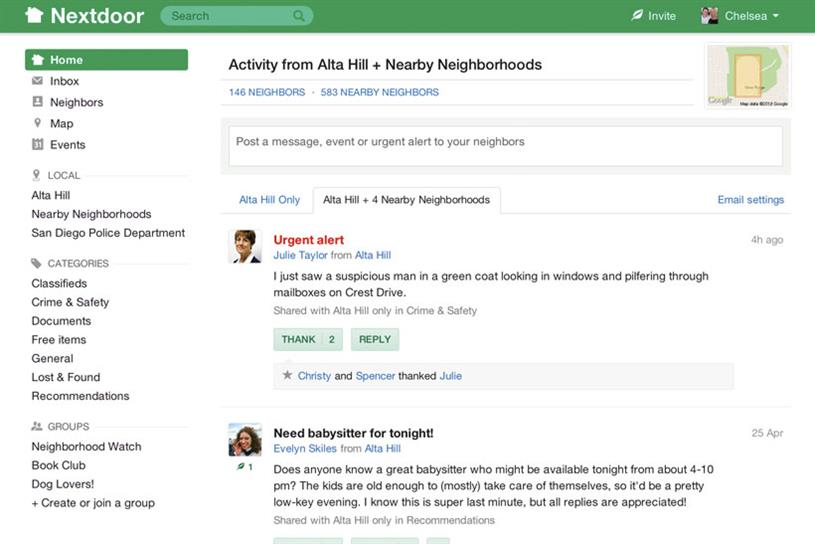
You can also view content (ie discussions) from other neighborhoods in your area through the ‘Nearby Neighborhoods’ feature. By adjusting your privacy settings, you can share your discussion with members of other nearby neighborhoods, or restrict your neighborhood feed to your own.
Nextdoor Privacy
Members are required to provide detailed personal information to confirm their identity and address. While you can set your privacy settings on your personal account, there are limitations.
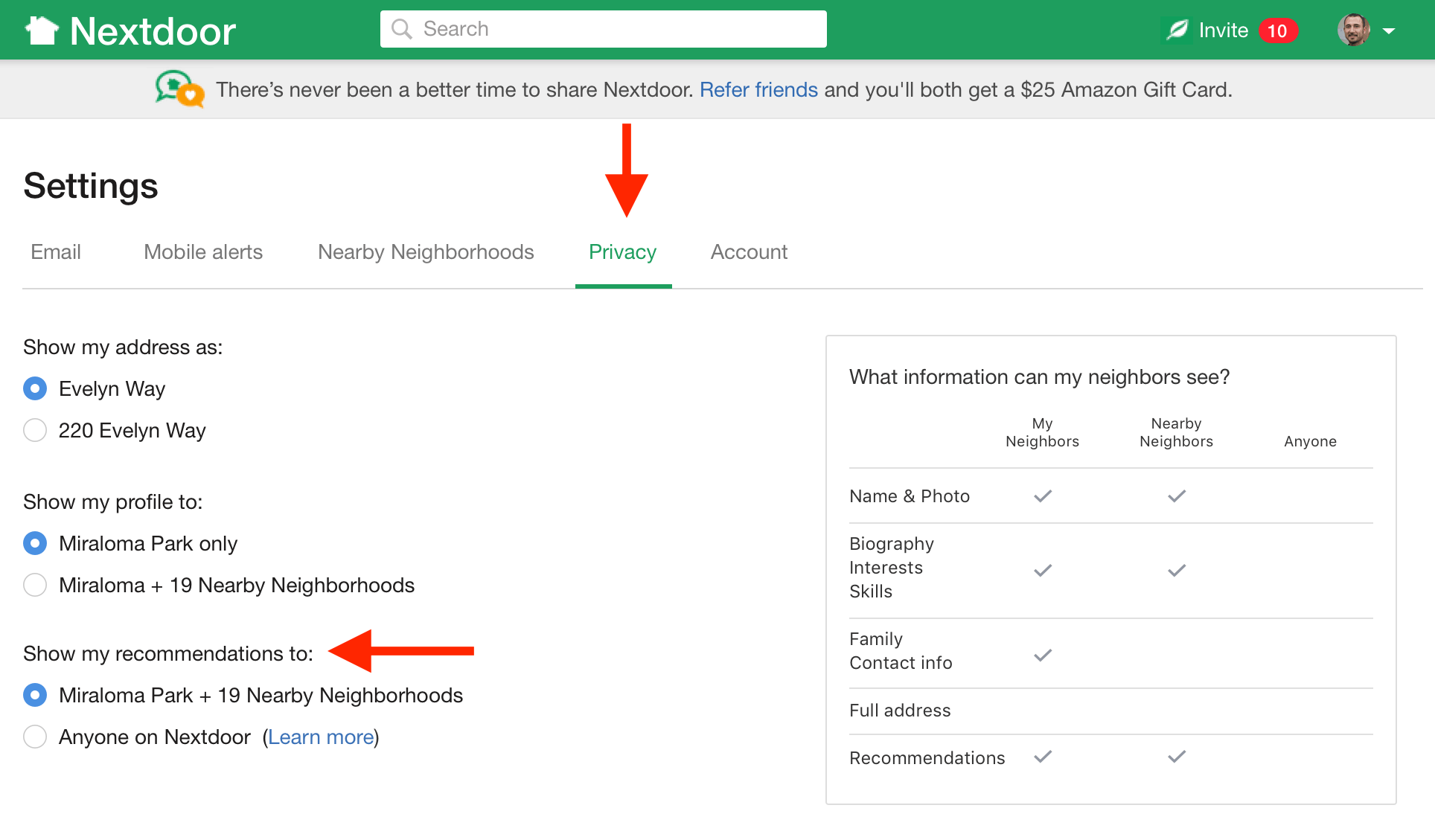
Complete anonymity is simply not possible on Nextdoor. Members are required to include their first and last name. Pseudonyms are not permitted. When you share content with nearby neighborhoods, your full name, photo, and neighborhood name are always displayed.
You can, however, adjust the privacy settings so that your photo can only be viewed by members of your neighborhood exclusively. Personal information( eg contact info, full address, family information) is never displayed.
Upon joining, you can also import Gmail contacts and invite others who live in the neighborhood to join Nextdoor.
Gmail contacts you engage with frequently may receive an invite to join Nextdoor. You can also select members from your contact list individually.
Nextdoor Neighborhood Leads
A Nextdoor Neighborhood Lead isn’t what you might think. Leads are community members who have been granted additional authority and privileges to manage content posted by members. They are not Nextdoor employees and, as such, receive no compensation.
Typically, a Nextdoor Lead is an individual who has demonstrated leadership in their community.
As a designated Lead for your neighborhood, you can delete posts and comments that violate Nextdoor policies. Business promotion, marketing, and advertisements, for example, are strictly forbidden.
Who Can Become A Neighborhood Lead?
- Active users who invite a lot of people
- Founding members of a Nextdoor neighborhood with 10 verified members
- Recommendation from another lead
- HOA members
Many of the criticisms against Nextdoor are directed at ‘Leads’, ie, people designated with special privileges to monitor and manage posts, comments, replies, etc. Bias, racism, xenophobia, harassment, bullying, political opinions and other controversial topics are a constant concern for members and Nextdoor.
Scathing reviews on Sitejabber paint a negative picture of a social network that really isn’t inclusive, and lacks a responsive customer service solution. Disappointment and frustration seem to be the key sentiments expressed by reviewers who were formerly members of the service.
Nextdoor For Real Estate
According to Nextdoor, 72% of its members are homeowners. As a result, they are now extending their exclusive membership to community-minded real estate agents for commercial purposes.
Anyone, including agents, can create a Nextdoor personal account with the right ID. If you want to use Nextdoor commercially, however, you need to create a business page. You can either:
- search for your brokerage and claim it
- or create a new business account
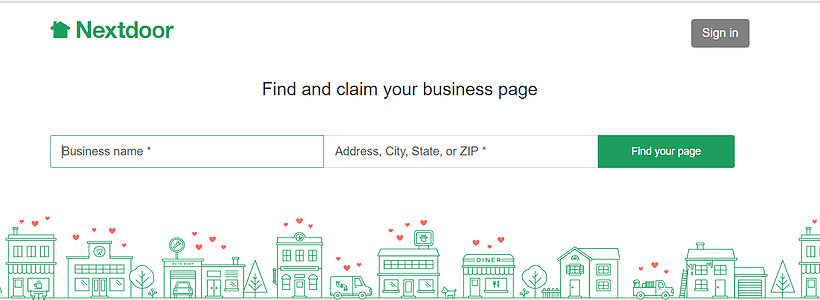
With a Nextdoor business page, agents specializing in a neighborhood can claim a zip code and build a business profile to gain hyperlocal exposure.
Your business profile includes:
- Business Name
- Physical address
- Photo
- Logo
- Greeting message,
- Hours of business
- Contact information
- Website Link
- Business Categories (agent, broker)
Your brokerage can receive recommendations as well. Recommendations are an endorsement from local residents, which raises your profile visibility and exposure in your neighborhood and nearby ones. Nextdoor members searching for an agent, for example, can use this feature and find you.
You can also use sharing buttons to attract recommendations from local residents.
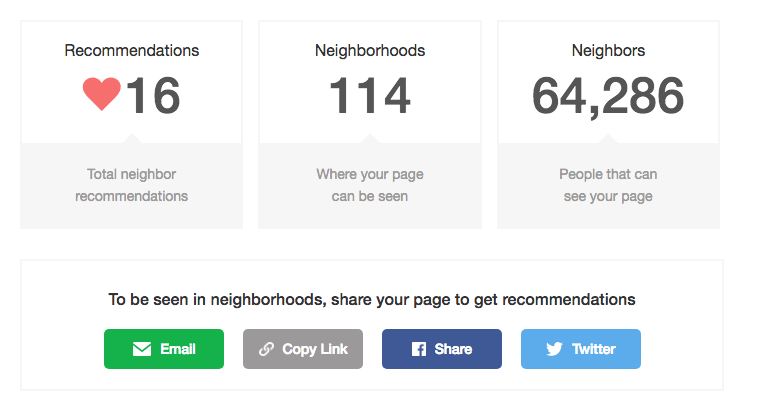
Without recommendations, no one on Nextdoor will even see your business page. So make sure to reach out to your contacts and gently encourage them to recommend you after you register your business!
There’s also a Reviews App, which means you can get reviews from Nextdoor members.
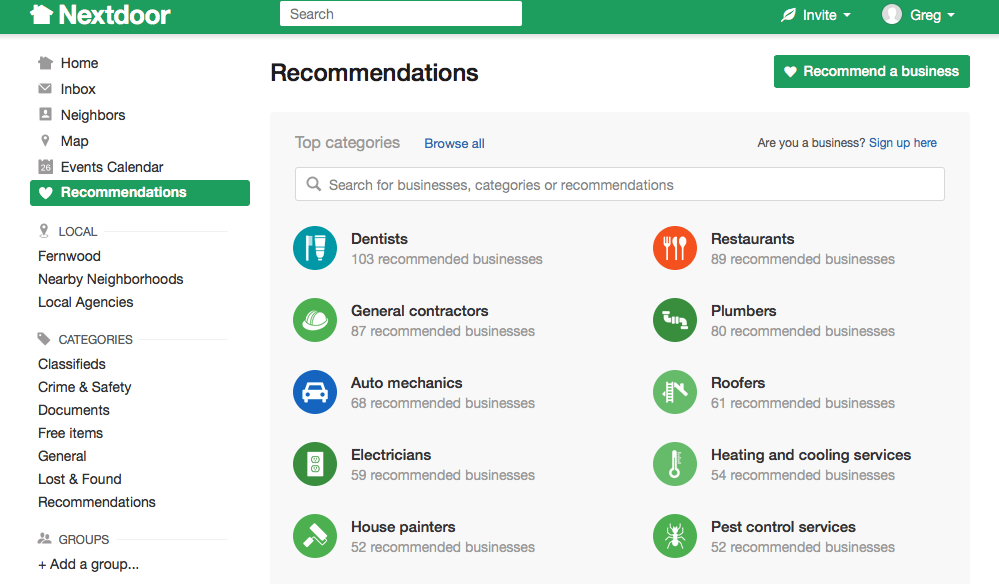
Nextdoor Neighborhood Reach
Another way to increase your exposure on Nextdoor is by including nearby neighborhoods in your reach. Neighborhood members living in close proximity to yours will then be able to see the content you post in their feed as well.
Real Estate Listings On Nextdoor
Local residents can view active listings in their neighborhood in the ‘Local Real Estate’ section of their account. Residents can also choose different filters for viewing listings as follows:
- For sale
- Pending
- Sold
- Most relevant first
- Newest first
- Closest first
The listings appear in the ‘Real Estate section’, or tab. New listings are automatically added to the news feed so that anyone in the neighborhood can see. Only agents, however, can list properties in the real estate section. FSBO’s are not permitted.
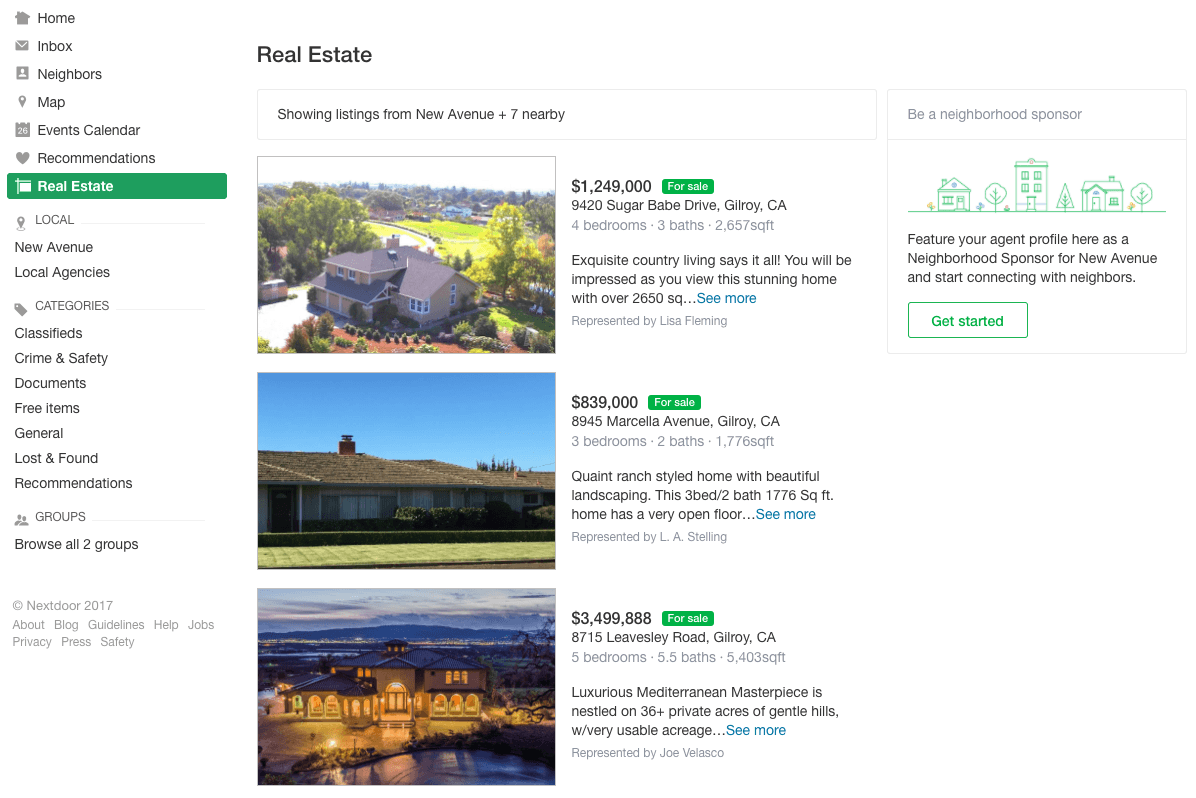
Posting To Nextdoor
Learn how to create a Nextdoor post in this helpful YouTube video from real estate agent Lori Ballen.
Nextdoor Branded Listings
In addition to posting your own content, listing agents can pay to include their branding and contact information on their Nextdoor listing. Cost ranges between $100 – $1000/month, depending on your location and demand.
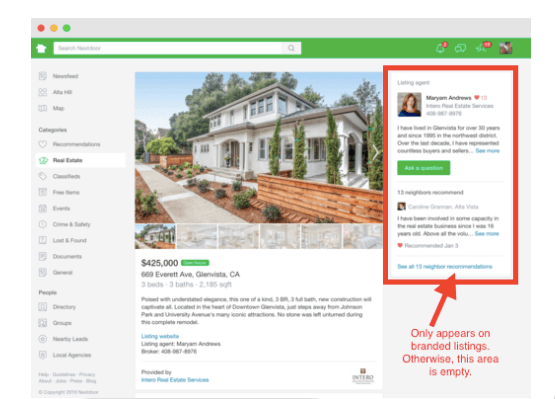
Members can also view listings using the Nextdoor Map, which allows you to expand your search to include listings outside the neighborhood. They can then contact an agent directly to inquire about the property.
Nextdoor Restrictions For Real Estate Agents
- If you’re an agent and you already have a Nextdoor personal account, you cannot post listings on your personal account. To do so is a violation of their policies and your account can be frozen.
- Don’t try to create a personal account in a neighborhood where you sell homes if you don’t actually live there. Nextdoor requires proof of your physical address to become a member of the neighborhood.
- Nextdoor also restricts agents from sharing Nextdoor content with people who are not members. In other words, if you are trying to promote your community to buyers who don’t live there, you won’t be able to use your Nextdoor profile.
- Agents who are founding members of a Nextdoor neighborhood cannot prevent other agents in the neighborhood from joining.
8 Tips For Real Estate Agents On Nextdoor
#1) If members are unhappy with Nextdoor because they feel excluded or that their privacy has been violated, why are they going to trust you as the ‘neighborhood sponsor’?
#2) There are many restrictions that prevent you from customizing and branding your content on Nextdoor. Furthermore, if agents on Nextdoor aren’t actually controlling the content, how exactly are you the neighborhood sponsor?
#3) Nextdoor can be a great way to gain brand recognition with local homeowners IF you have active local listings to promote. New agents, however, with no listings, will need to share content regularly to build relationships with potential sellers.
#5) Be careful not to violate Nextdoor policies or to offend a Nextdoor Lead. Your account will be frozen, but the resulting negative word-of-mouth could be even more damaging to your reputation.
#6) Non Nextdoor members cannot see or access your Nextdoor neighborhood unless they are members. So, if you’re trying to attract buyers outside the neighborhood, you won’t be able to unless you give them your password and login credentials.
#7) Even with a Nextdoor business page, you can only promote properties that are physically in your neighborhood.
#8) Other agents living in your neighborhood or nearby neighborhoods can create a business page as well. They can compete with you by engaging with local homeowners by sharing content, discussions and sending direct messages.
Ultimately, Nextdoor’s offering for real estate agents can be valuable for finding local sellers, but promoting your neighborhood to non-members will be a challenge.
Nextdoor Vs Parkbench Neighborhood Websites
Parkbench was built on the principle of helping neighborhoods grow. The key to helping neighborhoods grow is helping and connecting with the businesses that serve the community. Nextdoor has completely overlooked this critical factor.
In the end, there really is no substitute for meeting people face-to-face to build trust. If you really want to expand your sphere of influence and brand yourself as THE neighborhood expert, you’re much better off investing in a branded Parkbench website that actually lets you control the content and promote it to other channels.
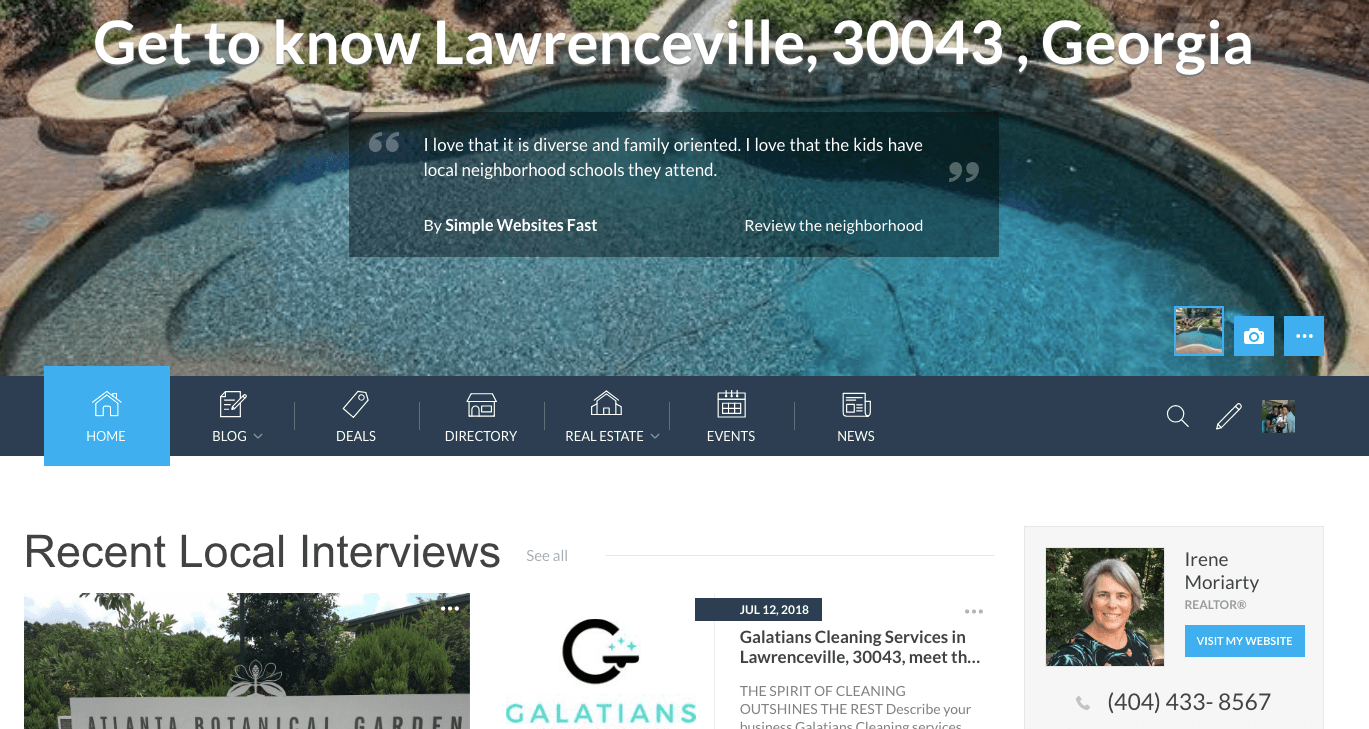
Branded Parkbench neighborhood website for real estate agents
Unlike Nextdoor, Parkbench users aren’t required to provide proof of address or ID, and anyone can become a member. Users can also post and promote their content for free.
In addition, Parkbench offers business owners in your area FREE marketing tools to increase their exposure to local residents.
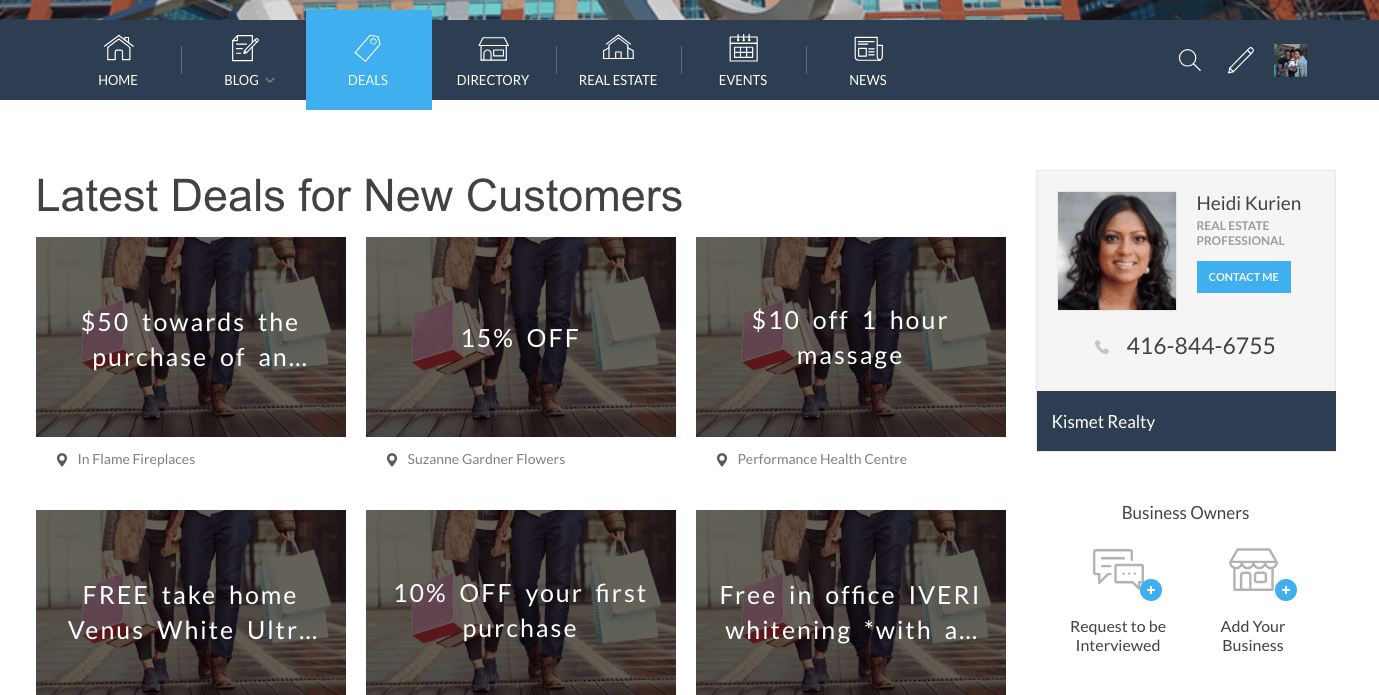
Local businesses post deals on Parkbench for free…
Business owners are the best referral generators for real estate. It’s also much easier to connect with business owners than residents who don’t know you. And, by adding value to business owners, word of mouth will quickly spread about you locally.
Utilizing a remarkable prospecting concept called the Local Leader Marketing System, neighborhood sponsors on Parkbench generate word of mouth referral business. Parkbench Success Coaches provide agents with coaching, training, and accountability, to help them master the Local Leader system and become ‘digital mayor’ of their farm.
Conclusion
So, after looking into Nextdoor, here is my perspective:
- Yes, you can get referrals on Nextdoor from local homeowners.
- Nextdoor can be an additional channel for building recognition and share of thought with local residents in your farm.
- A branded listing can potentially attract local residents who are thinking of selling.
- Prospective buyers from outside the neighborhood need to become members before they can see your listings.
In a way, Nextdoor’s exclusivity can be a real obstacle to prospecting and attracting members. Becoming a member can be a very time-consuming, frustrating experience that requires you to divulge a lot of your personal information.
Most importantly, you’ll need to be very mindful of how you engage with residents on Nextdoor. Avoid threads and discussions that could be considered controversial or offensive. If you wind up offending your neighbors on Nextdoor, you’ll earn a bad reputation that circulates quickly.
Let me know if this article was helpful for you in the comments below. Visit often for more great tips to build a successful, relationship-based real estate business!
Are you ready to claim your Parkbench neighborhood website? Book a demo today!
